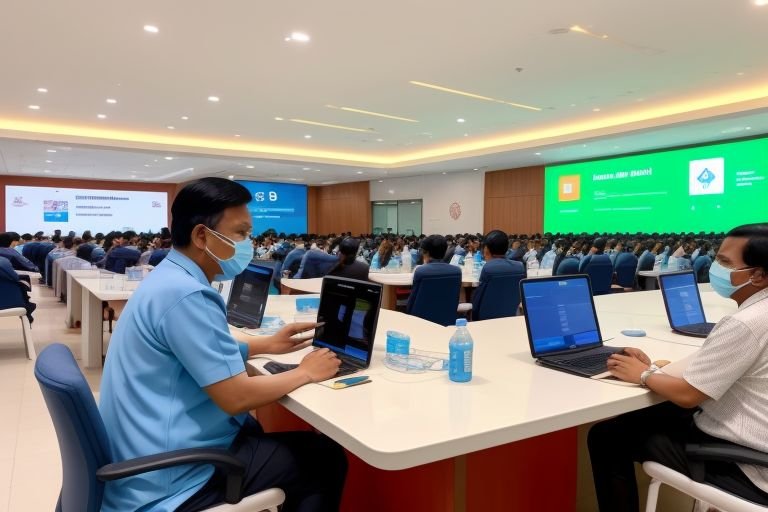
Indonesia Expands AI Health Solutions To Boost Digital Transformation
Indonesia is moving full throttle in proactively incorporating artificial intelligence to improve healthcare as one of the key sub-sectors of the government’s agenda in advancing digital healthcare Ministry of Health throughout the country. The Ministry of Health recently declared a partnership with Google Cloud to advance the AI health solutions that can enhance the reception of the patients, make significant changes in the existing healthcare delivery systems, and enhance the medical research.
This partnership is in line with Indonesia’s aggressive road map for the advancement of digital health systems to upgrade the healthcare system of the nation. The initiative comes at the right time as Indonesia tries to find ways and means or delivering effective healthcare services to the population of more than 270 million people which is spread across the geographic region.
As part of this partnership the tech giant Google Cloud will be offering its cutting edge artificial intelligence and machine learning capabilities for multiple facets of Indonesian health care industry. Among them there is important work to improve the medical imaging analysis. AI technologies will be introduced to do a better and faster work for radiologists in diagnosing the X-rays, CT scans and MRIs, which may help to diagnose illnesses earlier and therefore enhance patient care.
Another grand area where the use of AI will come in handy will be the forecasts of population health. Currently, the concept of the practical application of this type of technology is to develop the technology using data from large sets of health records along with environmental factors in order to predict disease outbreaks and enrich the data concerning the risk factors of the population. This capability could be so beneficial in a country with different types of diseases and other natural calamities.
The initiative also involves the use of artificial intelligence in the creation of chatbots and virtual health care assistants for patients’ better interaction and getting maximum basic health information. The TV and the radio are believed to ease the work load of the health care providers, enhance access to health information in the rural areas where doctors and nurses are very scarce.
Dr. Budi Gunadi Sadikin, Indonesian Minister of Health, also said he is optimistic about it and added “This partnership with Google Cloud is a milestone towards realizing a more sophisticated and equitable health care system in Indonesia.” We envision that, with the help of AI, we will be able to eliminate those weaknesses that have always existed in healthcare delivery systems and start paving the way for new advancements that will be of benefit to all Indonesians.
The use of these solutions will also be slow, with plans for running a trial in some hospitals and healthcare organizations in the major cities. The Ministry of Health intends to observe these first deployments to understand their success factors and failures so that effective national deployment can be achieved.
Nevertheless, the package has elicited some criticism. A number of stakeholders have also argued that data privacy is a significant concern, and that technology plays a hefty role in many medical decisions. In return, the government has stated that proper security measures on data protection will be implemented and that AI will act as support tool for human medical professionals.
The integration of AI in healthcare is a part of a digital change process in Indonesia. The country has been growing the adoption of digital technologies in multiple sectors, and health is perceived as an ideal sector that would benefit from advancements in technology. The development of a new, overarching electronic health record system, as spearheaded by the government’s SATUSEHAT program is also part of this digital health strategy.
As Indonesia accelerates its digital health advancement, the utilization of AI is envisaged to severely help in inaugurating some of these healthcare difficulties in Indonesia. The application of AI in healthcare is therefore vast and ranges from increasing diagnostic precision to improving disease monitoring and identifying how resource can best be utilized.
The positive outcome of this project could set up a benchmark for other developing nations desirous of using technology in enhancing health care standards. With the upcoming program all the stakeholders will be watching Indonesia to determine how they will tap into the benefits of AI to redesign the country’s healthcare sector and the lives of their people.


